|
|
|
|
| |
Sponsors
Projects
Lunches for Learning has always maintained a laser focus on providing lunches in school - because that's what keeps kids in school and helps them complete their education. However, we have encouraged many of our school sponsors to visit Honduras with us on Day-in-the-Life Trips and Graduation Trips. These trips have always been designed to introduce current sponsors to the schools they support and experience first-hand the very real impact of our mission which is made possible by their financial commitment.
Because the needs are so numerous in this region of Honduras, our sponsors - along with input from community leaders in the Valle Department - often identify additional needs at their sponsored schools above-and-beyond the lunch program. We often receive questions about the types of projects which Lunches for Learning endorses - and the types we tend to discourage.
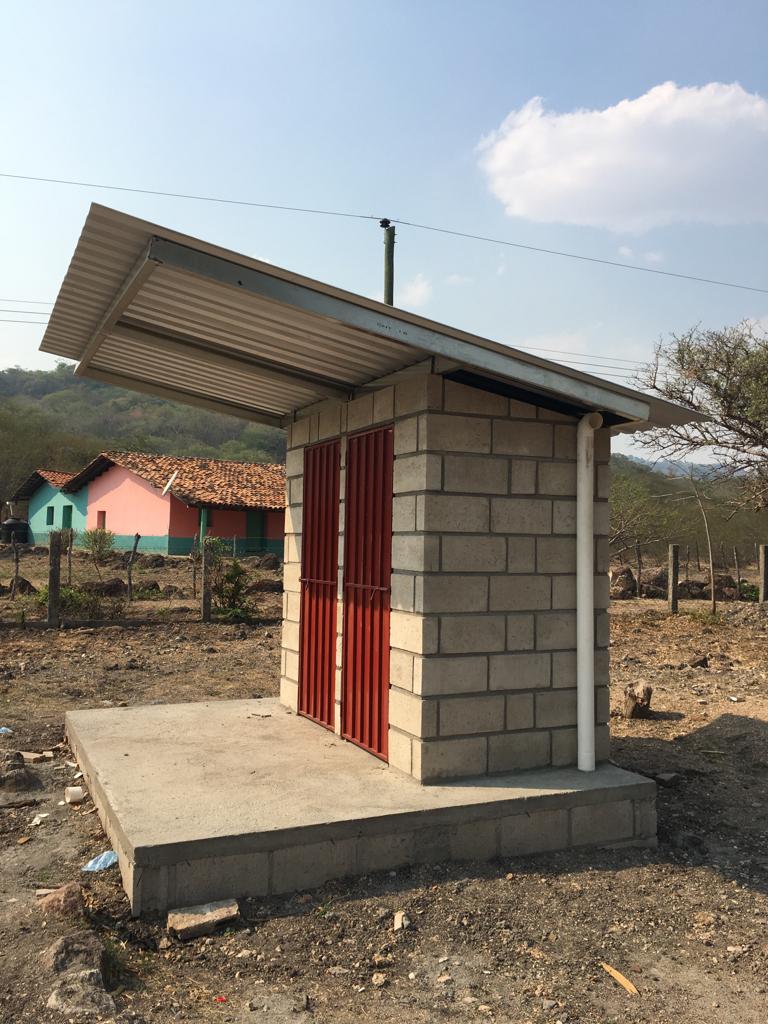 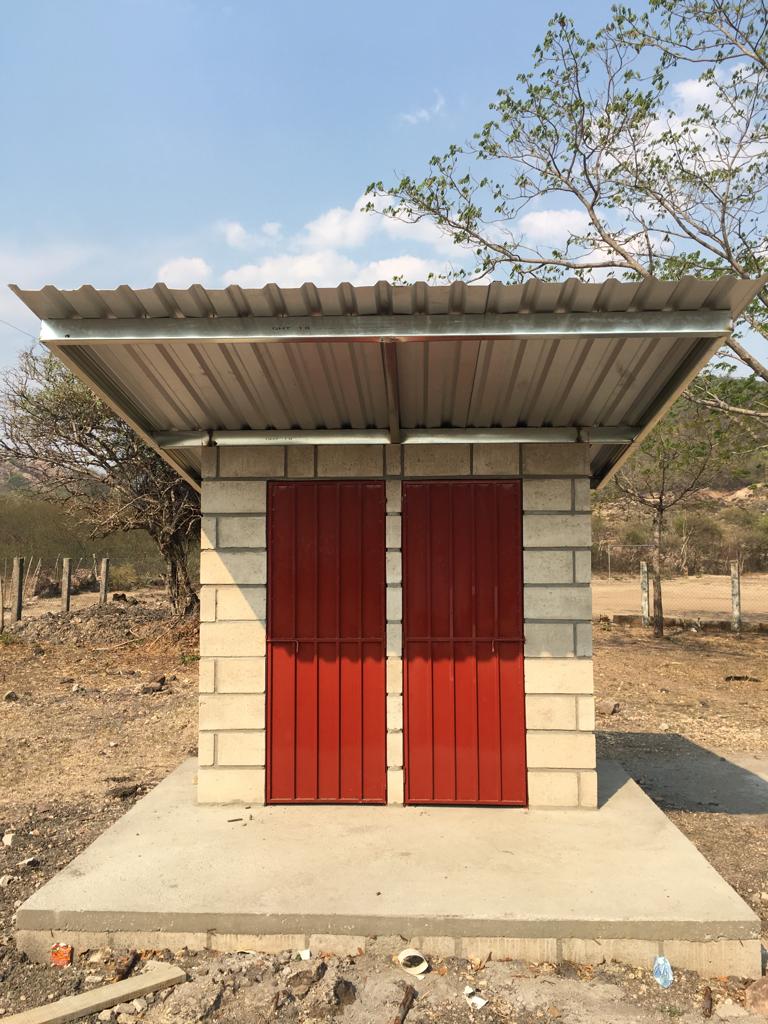 Provided that the lunch program at any L4L-sponsored school is fully-funded, most projects which directly improve lunch program delivery or the learning process in school are encouraged by L4L. This includes kitchen construction, latrine construction, roof repair or replacement, and textbooks or other learning materials which benefit the entire school: Provided that the lunch program at any L4L-sponsored school is fully-funded, most projects which directly improve lunch program delivery or the learning process in school are encouraged by L4L. This includes kitchen construction, latrine construction, roof repair or replacement, and textbooks or other learning materials which benefit the entire school:
- Without an on-site kitchen, the mothers of the community must prepare meals at their homes and then carry the cooked food - sometimes a 45-minute walk or more - to the kids at the school.
- In the absence of indoor plumbing at these schools, the kids and teachers receiving lunches deserve to have latrines which improve sanitary conditions and provide a sense of basic dignity. The latrine pictured here was provided in 2019 by Good Shepherd United Methodist Church in Madison, Alabama for the students and teachers at their sponsored school.
- Damaged or missing roofs make it impossible for kids to be in school during the rainy season, which also hinders their ability to receive the daily school lunch provided by our sponsors and donors.
- Textbooks and other basic learning tools are a rare luxury in many of these remote, rural, public schools in Honduras. These important learning tools are simply not provided in any consistent fashion by the Honduran Education Ministry.
Are there projects which L4L discourages?
Yes. The L4L school lunch program is empowering the kids of rural Honduras to learn their way to a better life. It's bringing a new sense of hope to these remote, rural, nearly forgotten communities.
However, any initiatives which can be perceived as providing handouts - or have the potential to create dependency, or ignore the innate skills and abilities in these proud Honduran communities - run the risk of creating resentment among the very families with whom we are building a long-term partnership. If we steer away from certain types of projects, it's only because we want to build our partnerships with these communities and avoid the potential for creating any resentment or dependency.
How does L4L suggest we balance the challenges identified in any of these deserving Honduran communities?
The answers to a few basic questions can quickly help us determine whether any suggested project would either empower the community, or potentially do more harm than good:
- Has the community in question been consulted so that they have the opportunity to help identify what their school's needs are? Or are we assuming that we know best what their needs are?
- If a tangible, brick-and-mortar project is suggested, are we hiring local tradesmen to coordinate much of the work effort - allowing them to use their skills and expertise to better their own community while they also earn pay to help them earn a living and support their own families?
- Is any project under consideration intended to benefit all children in the school equally?
The L4L school lunch program is literally changing the trajectory of the lives of kids who would likely otherwise be dropping-out of school to search for food on a daily basis. We simply want to make sure that we are constantly maintaining our focus on this life-changing school lunch program - while at the same time allowing our sponsors and donors to grow their relationships with their sponsored school communities by considering additional initiatives which directly benefit the lunch program and the school learning experience.
If you would like to learn more about how you as an individual, your family, your church or your organization could expand your impact in Honduras by meeting some of these additional needs at L4L-sponsored schools, contact Phil to discuss this further.
Frequently Asked Questions
The milk is served hot?
All of the L4L lunch components are provided in dehydrated form - including the milk. The reason for this is the fact that these schools have no electricity to provide any type of refrigeration. Because the milk is powdered, it is re-constituted on-site each day as lunch is being prepared. The water being mixed with the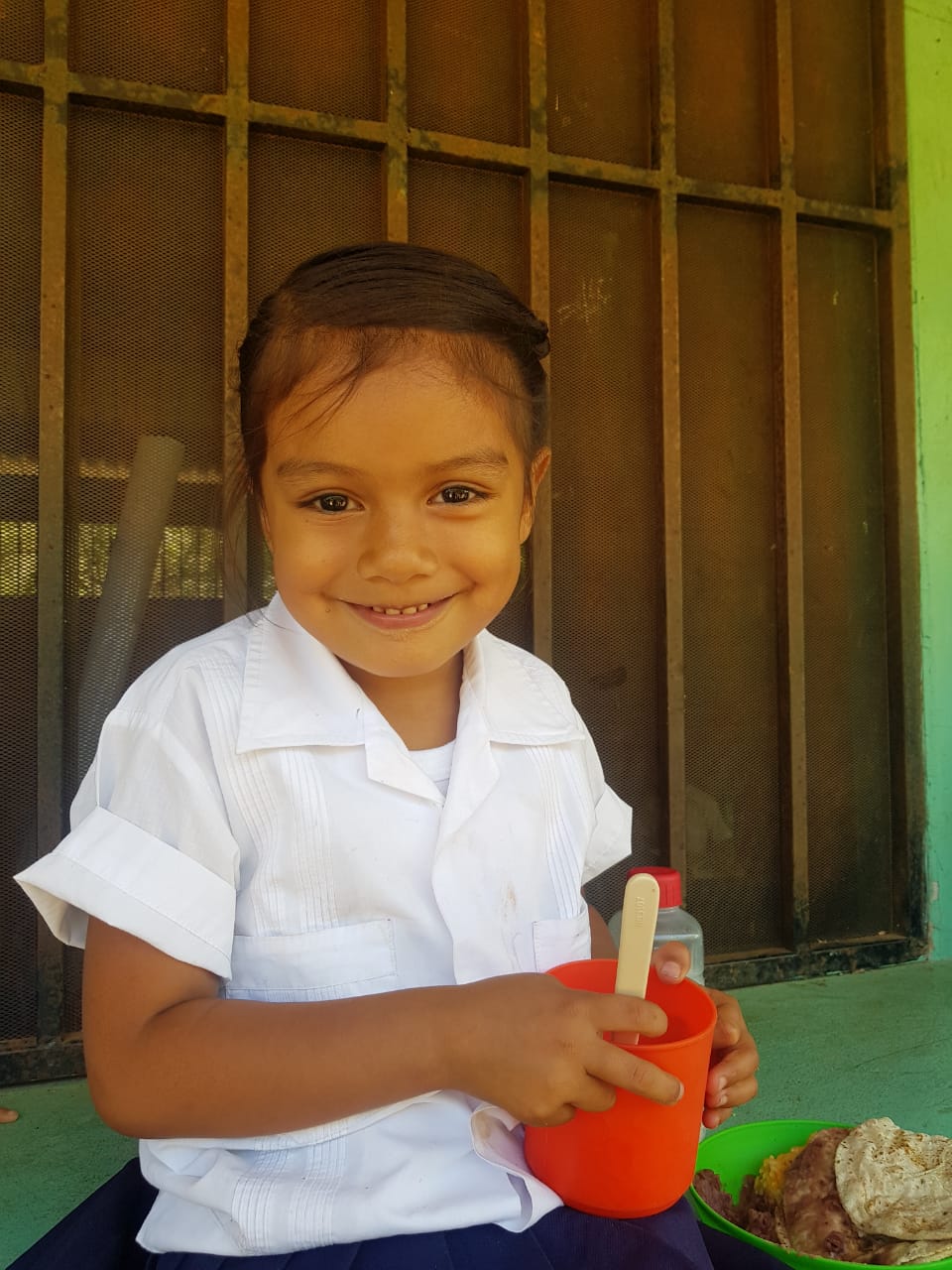 milk is obtained from a local creek, stream, or community well. That water needs to be boiled to ensure that it is safe to drink. Without the ability to refrigerate the milk, it is cooked early in the day so that it can be allowed to cool - somewhat - before being given to the children, but it remains warm-to-hot when they receive it. milk is obtained from a local creek, stream, or community well. That water needs to be boiled to ensure that it is safe to drink. Without the ability to refrigerate the milk, it is cooked early in the day so that it can be allowed to cool - somewhat - before being given to the children, but it remains warm-to-hot when they receive it.
You have likely heard us say that the children often tell us that the glass of milk is their favorite part of their lunches. That's because milk is such a rare treat for them. With their parents struggling to feed them each day, they have absolutely no access to milk. It's their favorite mainly because it's a new treat to them once the L4L school lunches are introduced in their schools.
In the photo you see here, the young girl has her spoon in her cup of milk. Because it's warm, many of the children "drink" their milk with a spoon, similar to the way one might consume a warm cup of soup.
Where do you get the food for the lunches?
All of the food components for L4L lunches are purchased in Honduras. We have a wholesale supplier in the town of Nacaome who provides the rice, beans, and corn (for the tortillas). The milk and cooking oil are purchased in the capital city of Tegucigalpa, and the sugar (small amount for flavoring the powdered milk) is purchased in the nearby town of Choluteca. We're not only providing life-changing lunches to the children in L4L-sponsored schools, but we are also contributing to the local Honduran economy every single month.
The only component of the lunches purchased elsewhere is the daily chewable multivitamins. Those we purchase from a partner non-profit named Blessings International in Broken Arrow, Okhahoma. These vitamins are simply not available anywhere in Honduras at wholesale prices. Blessings International has been a wonderful partner for many years - even waiving shipping costs to ship each supply of vitamins from the US to Honduras.
What is the difference between an L4L sponsor and an L4L donor?
Because L4L is an IRS-approved 501(c)(3) non-profit organization, all gifts made to L4L are fully tax-deductible. We are funded 100% through charitable gifts. We receive no government grants and have no other sources of funding. Charitable giving makes the L4L program possible. Anyone who makes a gift to L4L is considered a Donor, and we are grateful for the generosity we receive from every single donor.
The term "sponsor" is used to describe an individual or a group - such as a family, church, civic organization, or just a group of friends - which has made an annual, ongoing financial commitment to L4L. Student Sponsors maintain a commitment from $150 per year up to $2,499 per year in support of our core lunch program. School Sponsors have committed to a level anywhere from $2,500 per year up to $20,000 per year to support the lunch program at a specific school, or sometimes more than one school. As School Sponsors, they receive the added benefits of their name(s) on a permanent banner at the school, they are recognized on the L4L website, they receive correspondence from their sponsored school each year, and they have the opportunity to visit the school they support when they travel to Honduras with us. You may view a roster of our School Sonsors on our Schools page.
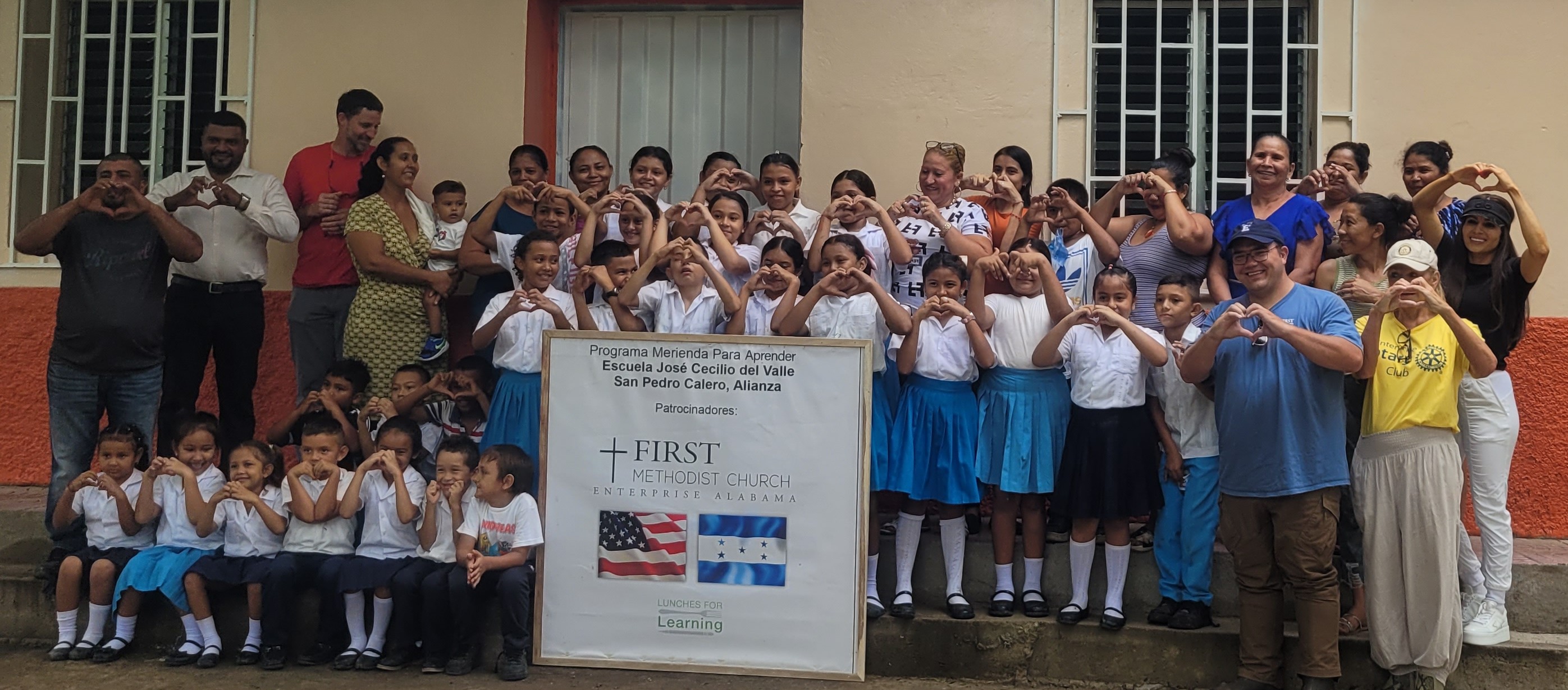
What are the requirements to become a teacher in Honduras?
Becoming certified to teach in Honduras is very similar to the process in the U.S. A four-year university degree is required to become certified as an entry-level teacher, and advanced degrees and certifications are required to advance in the teaching profession, to achieve the Honduran equivalent of "tenure", and to become a principal. In schools where the principal is the only teacher for all grade levels, students develop excellent collaborative learning skills as the teacher works with one grade level grouping, then gives them an assignment to work on together as he or she moves to work with the other grade level groupings throughout the day. These Honduran teachers accomplish amazing thngs through their innovative methods of utilizing limited resources while teaching their students.
Is L4L considered a faith-based non-profit?
L4L is an independent 501(c)(3) non-profit organization, and as such we are not officially a faith-based organization. Many of our supporters are active in churches that are either part of a mainline denomination or non-denominational, and some supporters are not involved in any church at all. We are supported by a number of churches in the US, as well as a number of Rotary Clubs, small businesses, individuals, informal groups, and families. Our decision to remain an independent non-profit is intentional.
As an example, several of our supporters participate in employee matching gift programs - and many of these corporate giving programs state explicitly that they do not support faith-based organizations. By remaining independent, and therefore appealing to the broadest possible spectrum of supporters, we can more easily grow our base of support and impact the lives of even more kids in Honduras. This was a decision made in the very earliest of days of L4L by our Founder, Ron Hicks, and our current Board and Staff fully agree that remaining independent is the best way to ensure the long-term success of the organization. Our focus is not on any affiliation at the organizational level, but on improving the lives of as many struggling Honduran kids as we can possibly reach.
How did L4L end up in this particular region of Honduras?
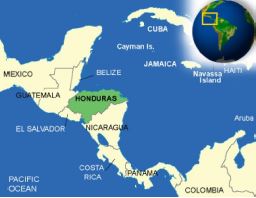 As our Founder, Ron Hicks was preparing for retirement in 2004, he made a motorcycle trip through Latin America. He left his home in Montgomery, Alabama, shipped his Moto Guzzi motorcycle to Brownsville, Texas, and began his journey there ... a journey that would take him through Mexico, Guatemala, El Salvador, Honduras, Nicaragua, and Costa Rica. As he was passing through a border checkpoint between El Salvador and Honduras, he was approached by a dirty young girl whom he later learned was named Anabel (pronounced "Annabelle"). Neither spoke the other's language, so Anabel reached out her hand asking for spare change. Ron gave her a few coins, then watched her immediately use those few coins to purchase food from a street vendor. He later learned that over 70% of families in rural southern Honduras lived in abject poverty and that kids routinely dropped out of school at very young ages because they were desperate to find food to survive each day. This desperation had created a multi-generational cycle of poverty with no end in sight. The plight of these Honduran children touched Ron's heart, and his determination led him to create Lunches for Learning right there in the Valle Department of Honduras ... the place where Anabel impacted his life simply by reaching out to him with an empty hand and an empty stomach. As our Founder, Ron Hicks was preparing for retirement in 2004, he made a motorcycle trip through Latin America. He left his home in Montgomery, Alabama, shipped his Moto Guzzi motorcycle to Brownsville, Texas, and began his journey there ... a journey that would take him through Mexico, Guatemala, El Salvador, Honduras, Nicaragua, and Costa Rica. As he was passing through a border checkpoint between El Salvador and Honduras, he was approached by a dirty young girl whom he later learned was named Anabel (pronounced "Annabelle"). Neither spoke the other's language, so Anabel reached out her hand asking for spare change. Ron gave her a few coins, then watched her immediately use those few coins to purchase food from a street vendor. He later learned that over 70% of families in rural southern Honduras lived in abject poverty and that kids routinely dropped out of school at very young ages because they were desperate to find food to survive each day. This desperation had created a multi-generational cycle of poverty with no end in sight. The plight of these Honduran children touched Ron's heart, and his determination led him to create Lunches for Learning right there in the Valle Department of Honduras ... the place where Anabel impacted his life simply by reaching out to him with an empty hand and an empty stomach.
Do you have a question that wasn't asked and answered here? Email us to submit your question.
|
|
|
|
|
|